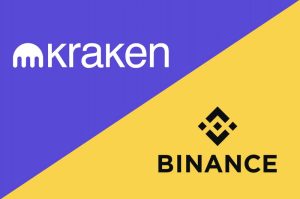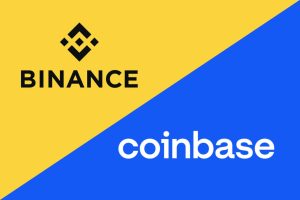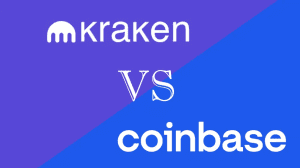What Are Cryptocurrency Mining Pools?

In the world of cryptocurrencies, mining is a fundamental process that ensures the security and functionality of blockchain networks. Mining pools play a crucial role in this ecosystem by enabling miners to collaborate and increase their chances of earning rewards.
This comprehensive guide will explore what mining pools are and how they work. We also cover their underlying purposes, various types, the advantages and disadvantages they offer, and even how to start your own mining pool.
Crypto Mining Pools Explained – Comprehensive Summary
Check out the article’s main talking points:
- Mining pools are groups of cryptocurrency miners who combine their computing power to enhance block mining chances. Miners get rewards in return, often cryptocurrency tokens and fees.
- Miners join pools, contribute power, and share rewards when a block is found. Regular payouts ensure a steady income.
- Pools stabilize earnings, boost efficiency, broaden mining accessibility, and enhance blockchain security.
- Centralized pools, operated by one entity, offer simplicity but may centralize power. Decentralized pools provide transparency and security but can be more complex.
- Pros include steady income, lower hardware costs, better reward chances, and network support. Cons involve reduced individual rewards, operator fees, and centralization risks.
What Are Mining Pools?
Mining pools are collaborative groups of cryptocurrency miners who combine their computational resources to solve complex mathematical problems and validate transactions on a blockchain network. In return for their contributions, miners receive a share of the rewards the pool earns, typically in the form of newly created cryptocurrency tokens and transaction fees.
How Mining Pools Work
Mining pools operate by harnessing the combined computational power of numerous individual miners. Therefore, it significantly enhances their prospects of successfully mining a new block on a blockchain. This collaborative process involves several key steps.
Initially, miners opt to participate in a mining pool by linking their hardware to the pool’s dedicated mining server. That includes tools like Application-Specific Integrated Circuits (ASICs) or Graphics Processing Units (GPUs). Once each miner joins, they contribute their computational resources to collectively tackle the cryptographic puzzle at hand for adding a new block to the blockchain.
When the pool effectively discovers a new block, the participating miners equitably receive the ensuing rewards based on their contributions to the pool’s overall hash power. These rewards typically encompass newly minted cryptocurrency tokens, a.k.a. block rewards, and transaction fees.
Moreover, mining pools routinely carry out reward distributions at specified intervals to ensure a reliable income stream. Thus, it offers miners a dependable source of earnings.
Types of Mining Pools
Mining pools fall into two primary categories, each offering its own set of advantages and considerations.
- Centralized pools: A single entity or organization typically operates and manages these pools. They are straightforward, offering miners an easy entry point into collaborative mining. However, they may raise concerns related to centralization, as a single entity controls the mining operation.
- Decentralized pools: In contrast, decentralized mining pools operate on a more distributed network. These pools offer transparency and increased security, as they often rely on decentralized protocols. While they provide greater assurance in avoiding centralization, they can be more complex to set up and manage.
Purpose of a Mining Pool
Mining pools serve a multifaceted purpose that significantly benefits individual miners and the blockchain network.
Firstly, they act as a buffer against the inherent variability in mining rewards, minimizing the fluctuations encountered in solo mining. By combining their resources, miners within a pool can establish a more consistent and stable income stream.
Secondly, mining pools enhance the overall efficiency of cryptocurrency mining operations. Pooling computational power increases the likelihood of successfully mining blocks, ensuring that miners are regularly rewarded for their contributions, ultimately making the process more efficient.
Furthermore, mining pools democratize cryptocurrency mining, making it accessible to a broader range of individuals. Even those with limited computational resources can participate in the mining process and enjoy a share of the rewards generated.
Lastly, a mining pool plays a pivotal role in ensuring the security and decentralization of blockchain networks. It contributes to the network’s robustness by validating transactions and creating new blocks. As a result, it enhances its resilience and prevents any single entity from monopolizing control.
Pros
- Steady income: Mining pools provide miners with a more predictable and consistent income.
- Lower hardware costs: Miners can participate without needing expensive, specialized equipment.
- Bigger chances of reward: Pooled resources enhance the likelihood of successfully mining blocks and earning rewards.
- Network support: These pools contribute to the strength and stability of blockchain networks.
Cons
- Less rewards: Miners share rewards with the pool, slightly reducing individual income.
- Operator fees: Mining pools may charge fees for their services, reducing overall profitability.
- Centralization risk: Centralized pools can potentially concentrate too much mining power, compromising network decentralization.
How to Start a Mining Pool
Starting a mining pool is a complex endeavor, requiring technical expertise and resources. Here’s a simple overview of what you need to do:
- Choose a crypto: Decide which cryptocurrency you want to mine in your pool.
- Set up hardware: Acquire and set up mining hardware and servers to handle the pool’s operations.
- Develop software: Create or customize mining pool software, which includes components for user registration, hash power contribution tracking, and reward distribution.
- Security measures: Introduce strong security measures to protect the pool from attacks and hacks.
- Attract miners: Promote your pool and attract miners by offering competitive fees, stable services, and a user-friendly interface.
- Maintenance: Continuously monitor and maintain the pool’s infrastructure and software to ensure optimal performance.
Frequently Asked Questions
Get more information about crypto mining pools.
What cryptocurrencies can you mine in pools?
Mining pools exist for various cryptocurrencies, with Bitcoin and Ethereum being among the most popular. Pools are available for numerous other altcoins as well.
Can I mine in multiple pools simultaneously?
Miners can participate in multiple pools simultaneously to increase their chances of earning rewards.
How do I choose the right mining pool?
Consider factors like the cryptocurrency you want to mine, the pool’s fees, reputation, and its size and distribution of hash power.
Are mining pools open to everyone?
Mining pools are open to miners of all levels, from individuals with basic hardware to large-scale mining operations.
What is the future of mining pools?
The future of mining pools depends on the evolution of blockchain technology and the popularity of cryptocurrencies. As networks grow, these pools’ role may evolve to meet changing needs.
Cryptocurrency Mining Pools Definition – Last Words
A Mining pool is an integral part of the cryptocurrency ecosystem, enabling miners to collaborate and earn rewards efficiently. It provides stability, accessibility, and network security, making them a crucial component of blockchain networks.
However, miners should carefully consider the pros and cons of joining a specific pool and choose one that aligns with their goals and resources.
Whether you’re a beginner or an experienced miner, understanding how a mining pool works empowers you to participate in the exciting world of cryptocurrency mining.
Please note that cryptocurrency investments carry inherent risks. Therefore, it’s essential to conduct thorough research and seek professional advice before engaging in any financial transactions.





